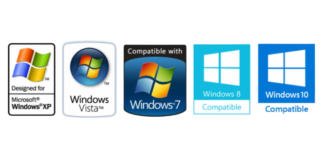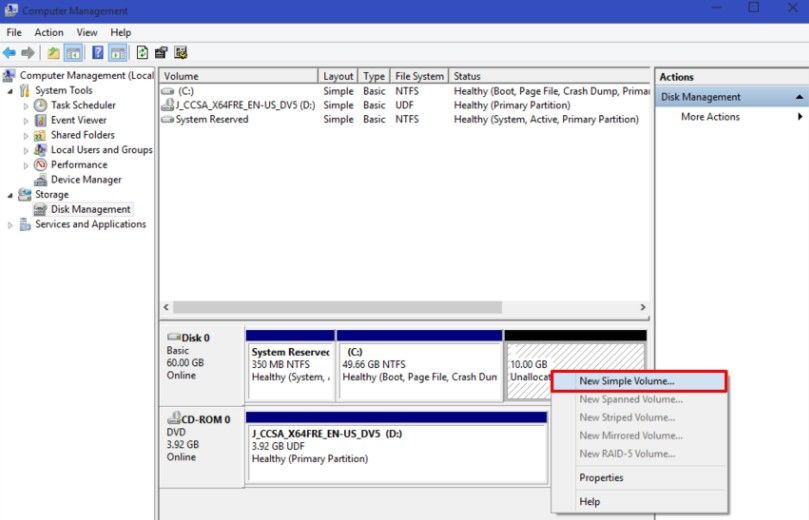

- #How to create boot partition windows 10 how to#
- #How to create boot partition windows 10 install#
- #How to create boot partition windows 10 update#
- #How to create boot partition windows 10 windows 10#
- #How to create boot partition windows 10 software#
In the Windows operating system, a boot partition is a primary partition that contains the boot loader and can help you boot the installed operating system. However you've got to completely shut down Windows, not Hibernate it, and not use Fast Start.What is boot partition in Windows 11/10/8/7?
#How to create boot partition windows 10 how to#
Ubuntu knows how to read and write into NTFS partitions. Related to that, would I be able to basically store all of my files on the drive that isn't partitioned for Ubuntu while just having any packages or tools necessary installed on the Ubuntu partition? Yes.

Please note it's easy to adjust later, especially if you let the Ubiquity installer used by Ubuntu create a swap file instead of manually overriding it to make a swap partition.

#How to create boot partition windows 10 install#
Until Ubuntu's addition of Snaps and change to Snap-based installs on many packages, 30GB was the typical advice here for an Ubuntu install now, 50GB or more is good to start. ġ) How much space do I need to allocate for the Ubuntu partition if I'm using Ubuntu for development purposes? from Western Digital or Buy More, and create a LiveUSB using Rufus with Persistence. If you must do this, get a USB flash drive which does not stick out of the PC very far, e.g.
#How to create boot partition windows 10 windows 10#
It's easy to manage a dual boot system with Ubuntu and Windows 10 on the same internal drive. Then you don't need muck about with partitioning and you can install multiple OS (and multiple versions of OS) for your development and testing.Ģ) Is it possible to instead install Ubuntu on a USB 3.1 drive and when I want to do coding I can boot that and do everything off that? Yes, but it will be very slow compared to an internal SSD or HDD, and more likely to fail than either an internal HDD or SSD. Then repartition and reinstall as complex a system as you wish.Īdvice: Since you have 1TB to work with, consider using a Virtual Machine for Ubuntu. Try it for a couple weeks - gain enough experience to have a preference. Make your first install successful instead of perfect. Nothing fancy - stick to the installer defaults. USB sticks have a limited number of write cycles, so it will only last a few months or years of modest use.Īdvice: Create a single 300-500GB partition for Ubuntu. Be sure to use USB 3.0 hardware and ports, or you will notice lag. Lots of folks change their minds (or really muck things up) and reinstall Ubuntu a few times during their first year. There's no product key to preserve, no system-restore partition, and no need for a swap partition or separate data partition (though you can have those if you want). If you lack a good backup strategy, you're not ready to start dual-booting.
#How to create boot partition windows 10 update#
You never know when a Windows update or a user typo will wipe all your partitions. You must be open to learning new techniques and habits.ĭual-boot requires good backups from the start.

#How to create boot partition windows 10 software#
The filesystem is different, installing software is different, security is different, installing and reinstalling is different, etc.ĭeeply-ingrained Windows habits will cause problems and break things. The first thing you need to understand is that Ubuntu is very different from Windows. Thank you in advance for any help you can give! I have two questions about this:ġ) How much space do I need to allocate for the Ubuntu partition if I'm using Ubuntu for development purposes? Related to that, would I be able to basically store all of my files on the drive that isn't partitioned for Ubuntu while just having any packages or tools necessary installed on the Ubuntu partition?Ģ) Is it possible to instead install Ubuntu on a USB 3.1 drive and when I want to do coding I can boot that and do everything off that? Ideally, to me, this is my preferred solution because then I don't need to use up any of the SSD space on the laptop, but I have no idea if this is feasible. I have a 1TB SSD on this laptop, but since I use it mostly for gaming I don't want to blindly allocate a ton of space for Ubuntu. However, I am looking to possibly dual boot Ubuntu on it for personal programming purposes (I absolutely hate doing development on Windows and didn't want to buy a Mac just for it). I will use it mostly for gaming or simple tasks. I just recently got a new laptop with Windows 10.


 0 kommentar(er)
0 kommentar(er)
